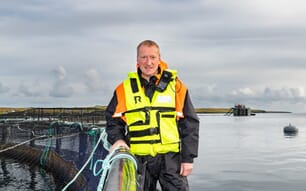For four stocks, mainly deep-sea sharks, the proposal does not yet contain a figure, because scientific advice will be delivered later this month.
European Commissioner for Maritime Affairs and Fisheries, Maria Damanaki, said: "Deep sea ecosystems and fish stocks are particularly vulnerable to human activities, such as fishing, and need appropriate protection. Hence, sustainable management is the only way we can ensure the future of deep-sea fisheries. It is good news that the scientific advice allows for increases for a number of these stocks, but unfortunately the situation is bleak for most other stocks. We look forward to continue working with the Member States to improve the knowledge on these stocks, and to work towards sustainable deep-sea fisheries."
For the important stock of Roundnose grenadiers West of the British Isles, scientific advice on how to achieve Maximum Sustainable Yield is available. Based on this, the Commission proposes a moderate cut for this stock (-12 per cent), which should allow it to be fished at sustainable levels in 2015.
For 2016 a small increase will be possible (+two per cent). For four stocks of Greater forkbeard, the Commission proposes 10 per cent increases.
For a number of other stocks, data is limited and a precautionary approach implies significant cuts to protect the stocks. This is especially the case for Red seabream in the areas West of Portugal and around the Azores. The scientific advice for the area West Portugal even calls for the development of a recovery plan.
The Commission's proposals are based on scientific advice from the International Council for the Exploration of the Seas (ICES). However, available data for most deep-sea stocks are insufficient to allow scientists to fully assess the stock status, either in terms of number of fish or fishing mortality.
Commenting on the proposed fishing opportunities, Oceana stated that the EC has failed to follow scientific advice that calls for drastic reductions in the three key stocks, and has neglected to consider ecosystem impacts.
According to Oceana, ignoring these aspects clearly runs counter to the precautionary approach, especially given the high vulnerability of deep-sea species to overfishing.
“Deep-sea species and ecosystems are recognised to be very unsuitable for sustaining heavy fishing pressure, because their recovery capacity is extremely limited,” declared Xavier Pastor, Executive Director of Oceana in Europe.
“For these stocks, scientific advice must be always strictly adhered to, because the risks associated with doing otherwise are simply too great.”


